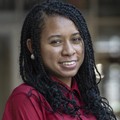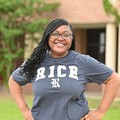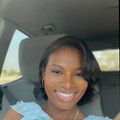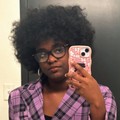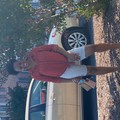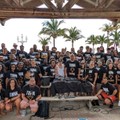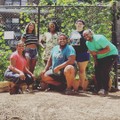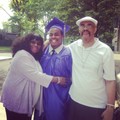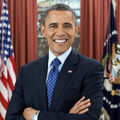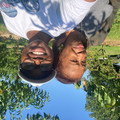Anyone has the potential to change the world.
The quote, ““Be the change that you wish to see in the world” remained a prominent factor of my life. I am a firm believer that any and everyone has the power to make a difference in this world regardless of any setbacks, roadblocks, or barriers that come about along through their journey in life. Working towards breaking past any roadblock or barrier that has found itself along your journey through life is crucial as you continue to work towards the desires that God has placed in your heart.
When I hear the term legacy, my mind doesn't jump to " fame”, “popularity", “wealth”, or even “position”, I think of “change”, “impact”, “care”, and “passion.” That's because, to me, a legacy is not determined by one's outward and material success, yet their commitment and passion to make this world a better place.
As someone who understands that at the end of life, the material possessions you have acquired will all diminish, that none of these material possessions will be able to be brought with you into the next life, this common misconception of the term “legacy" to me has become almost accepted in today's society. Whereas legacy is socially accepted to deal with monetary aspects, it should be viewed in a more spiritual aspect in my opinion, incorporating aspects such as faith, beliefs, and core values.
Being raised with values of compassion, care, and a will to assist everyone in this world, I will use the gifts and desires given to me by God in order to assist my community in all ways possible. And being raised with these values and beliefs, I know that God will continue to direct me along the right path in life and that my family will continue to inspire and motivate me to become the best version of myself possible. One Bible verse that sticks with me as I struggle through tough times is Luke 1:37, “for with God nothing shall be impossible.” This verse has helped me through many internal struggles and barriers that have all attempted to stop me from becoming the best possible version of myself.
Continuing to work in the calling and path God has set for my life, I hope to inspire future cohorts and generations of leaders to become the best versions of themselves, helping their communities, and working towards a greater world for everyone!
To me, legacy represents the mark we leave on the world, like one’s character, reputation, the life you lead, and actions that can be treasured by someone through time. It is a beacon that guides future generation's paths to be better than the last generation’s path, a narrative handed down from one generation to the next, and a responsibility to carry forward the wisdom, traditions, and values instilled by those who came before us.
My upbringing has been the foundation of my understanding of legacy. Raised in a modest, hardworking immigrant family from Jamaica, I witnessed the relentless pursuit of dreams amid adversity. My parents and I, immigrants seeking a better life, instilled in me the values of resilience, and tenacity, and the importance of education was emphasized as the key to unlocking a brighter/better future. Their sacrifices, coupled with their unwavering belief in the power of knowledge, laid the foundation for my aspirations and shaped my perception of legacy. My upbringing instilled in me a deep appreciation for the sacrifices made by those who came before me, laying the foundation for the opportunities I have today. The opportunity to come to America to find a better life, to go to university, and to form our perspectives on the world.
Growing up, financial constraints were a constant companion, but they never discouraged my parents from emphasizing the significance of education. Their legacy, a testament to perseverance, inspired me to excel academically. Despite the challenges, I embraced my studies as a means of breaking the cycle of limited opportunities that had defined our family's past. My parents' sacrifice fueled my determination to pursue higher education, opening doors previously closed to our family.
As I navigate through life, I am aware of the impact my choices can have on future generations. The legacy of my upbringing has motivated me to break free from the cycle of circumstances. I plan to continue this legacy by actively contributing to my community, advocating for educational opportunities, and later on serving as a mentor for those facing similar challenges. While I am proud of the resilience instilled by my upbringing, I also recognize the need for evolution.
Legacy is not stagnant; it evolves with each generation. I am committed to breaking the cycle of limited opportunities by fostering an environment of inclusivity and empowerment. I plan to use my education and experiences to challenge systemic barriers, ensuring that the legacy I leave is one of progress, equality, and compassion. Moreover, my goal is to redefine the narrative of success within my family. Instead of measuring success solely by financial achievements, I aspire to emphasize the importance of personal growth, social impact, and emotional well-being. By doing so, I hope to break free from the conventional constraints that may have limited the aspirations of my ancestors, creating a legacy that is expansive, inclusive, and reflective of the evolving world around us.
In conclusion, legacy is a dynamic force that shapes and propels us forward. My upbringing has been both a compass and a catalyst, steering me toward a future of resilience, education, and social impact. I am committed to continuing this legacy by breaking the cycle of limited opportunities, fostering inclusivity, and redefining the metrics of success. Through these efforts, I aim to contribute to a legacy that transcends generations, leaving an enduring mark on the world that reflects the values of progress, equality, and compassion.
To me, legacy is about the lasting impact that a person has on the world and the people around them. It is the sum of a person's choices and actions throughout their life and how those choices and actions influence and shape the world around them. Legacy can be seen in the relationships and connections that a person has with others, in the contributions and innovations that a person makes in their field or community, and in the values and principles that a person upholds and passes on to future generations.
In my own life, my upbringing has had a significant impact on the path that I have taken. Growing up in a challenging and tumultuous environment with an abusive mother and the responsibility of caring for my younger siblings at a young age taught me resilience and the importance of self-reliance. It also instilled in me a sense of compassion for others who may be going through similar struggles and a desire to work towards creating a better world for everyone.
Despite the challenges I faced in my childhood, I have tried to turn those experiences into opportunities for growth and learning. I have worked on developing my sense of self-worth and self-confidence and used my love of creativity and imagination to fuel my passions and goals. I have also used my love of creativity and innovation to pursue a degree in urban planning, with the goal of using my skills and knowledge to create more livable, sustainable communities for everyone.
Ever since I was young, I have thought of how we could collectively improve how we live, work, create, and lead. Through this drive, I am working towards developing a cooperative that redevelops and sustains ecologically low-impact living centers focused on human flourishing and economic prosperity—developing collaborative and multifunctional spaces for communities. My future work will prioritize the equitable redevelopment of existing neighborhoods to expand affordable-weatherized housing, green spaces, clean energy, reliable public transportation, and economic opportunity.
One approach I plan to implement through the cooperative is adapting to the impacts of climate change by identifying areas at risk of flooding and developing strategies for protecting against damage from extreme weather events. As well as work on designing and implementing measures to improve energy efficiency and reduce greenhouse gas emissions. With my renewable energy background, I could provide expertise on the potential for using renewable energy sources such as solar and wind power to replace fossil fuels and reduce the region's carbon footprint. I would work with lawmakers to shift policy to facilitate clean energy costs for individuals and businesses, which can save money and boost economic productivity. Mitigating fossil fuels by leveraging renewable energy systems can, in turn, reduce healthcare costs and improve quality of life.
Moving forward, I plan to continue on this path of personal and professional growth, using my passions and interests to drive my efforts toward creating positive change. I also plan to work towards breaking the cycle of abuse and hardship that I experienced in my childhood by advocating for and supporting others who may be facing similar challenges. I believe that by focusing on my own personal growth and using my skills and abilities to make a positive difference in the world, I can leave a meaningful legacy that will continue to inspire and benefit others long after I am gone.
To me, legacy means creating a sustainable foundation for others to thrive and making an impact in your community through service and advocacy. Recently, I have done this at Arizona State University through JEDI work and curriculum. In my junior year, I joined the Justice, Equity, Diversity, and Inclusivity (JEDI) workgroup for the School of Sustainability as an undergraduate chair member. In our first meeting, we discussed how the School of Sustainability (SOS) has done little to acknowledge the contribution of BIPOC (Black, Indigenous, People of Color) to sustainability efforts or issues. Although the SOS did require courses that considered equity and justice there were few offerings that focused on race or how race, class, and gender create different realities for different people. I suggested we create a course that studied the intersections of race and identity and how different communities experience or act upon sustainability. I suggested that we move quickly to offer this new course in the upcoming spring semester and make it student-led, faculty-advised. I received support from a faculty member, developed a course proposal, sent it to the registrar, and got it approved in a week’s time. I developed the course without any prerequisites so that it would be accessible to anyone at my university while being inclusive of all degree levels such as undergraduate, master’s, and doctoral students. I was able to successfully enroll 21 students in the course while splitting it in half for undergraduate and graduate students. One topic I taught about was Black Representation in Sustainability and how Black Americans have paved the way for the modern-day environmental movement by preventing toxic facilities, advocating for public lands, and highlighting climate change as a human rights issue. After facilitating part of the class, I handed it over to the students where they split into teams to teach one class. Collectively, we brought in guest speakers and learned about topics such as ecofeminism, leadership from indigenous communities, and land stewardship. An idea I thought was ambitious at the time only scratched the surface of my potential and reflects the passion I have to lead by uplifting others. I was proud of myself because this experience made me realize my leadership prevails when I amplify voices. I created space for everyone to express their cultural identities, passions, and interests they otherwise could not find in academia. As I continue to learn, I will continue to do work that leaves space for myself and others who need it the most.
As a member of the African American community on my mother's side, the legacy of my ancestors has always been engraved in my heart and mind. We are to work hard so that those who come after us may live a better life than us full of prosperity and wealth. These same ideas were passed down to my parents, and they were instilled in me as well. As a member of the West Indies community on my father's side, the legacy of my ancestors has always been to gain status and power so that those who come after us do not have to work has hard to achieve their own dreams. While I understand where the ideals of both sides of my lineage come from, I can not say that I agree wholeheartedly. Working hard to achieve your dreams is important. It creates a sense of pride and fulfillment. Unfortunately, my lineage has instilled the idea of working to the bone in order to achieve these dreams no matter the cost.
Growing up I was led to believe that the only paths available to me were in medicine, engineering, or law. In order to bring status and prosperity to my family, I had to pick a career path that would leave me wealthier than my parents. What my lineage has failed to realize is that money and status do not equate to happiness. These ideals are not at the heart of a family or the memories that are made. Growing up I put aside many different passions in order to pursue careers that made my family happy, and I let myself believe that continuing our legacy in the way they had taught me would make me happy too. I succeeded in academics and I worked hard to gain money to support my dreams. In the midst of all the sweat I was accumulating by chasing these dreams so feverishly, I lost sight of the things that mattered most to me individually. What my lineage had failed to relay to me was that all these accomplishments came with sacrifices, sacrifices I was no longer willing to take. I came to realize that the top is lonely when you outcast everybody around you in order to get there.
To me, legacy is about the memories you create that can be passed down from generation to generation. It is about the morals you instill within your children to make them better, more understanding people. It is about the love you create that will last a lifetime. Creating happiness within your life is more important than allowing generational pressure to tie you down to live a predetermined lifestyle. In my future home, I want to create a new legacy, one in which I allow my children to achieve the goals that they set for themselves without the constraints of their ancestors to hold them down. Of course, I want them to work hard for what they want, but not at the cost of their own health, both mental and physical. As much as I love my family and those that came before me, I want to change our lineage and our legacy for the better. While my career path in life does align with the ideals of my father's lineage, I have made these choices solely on my own terms and for my own happiness.
[ the photo ]
Attached is a photo of my grandmother, the strongest, bravest woman that I know.


